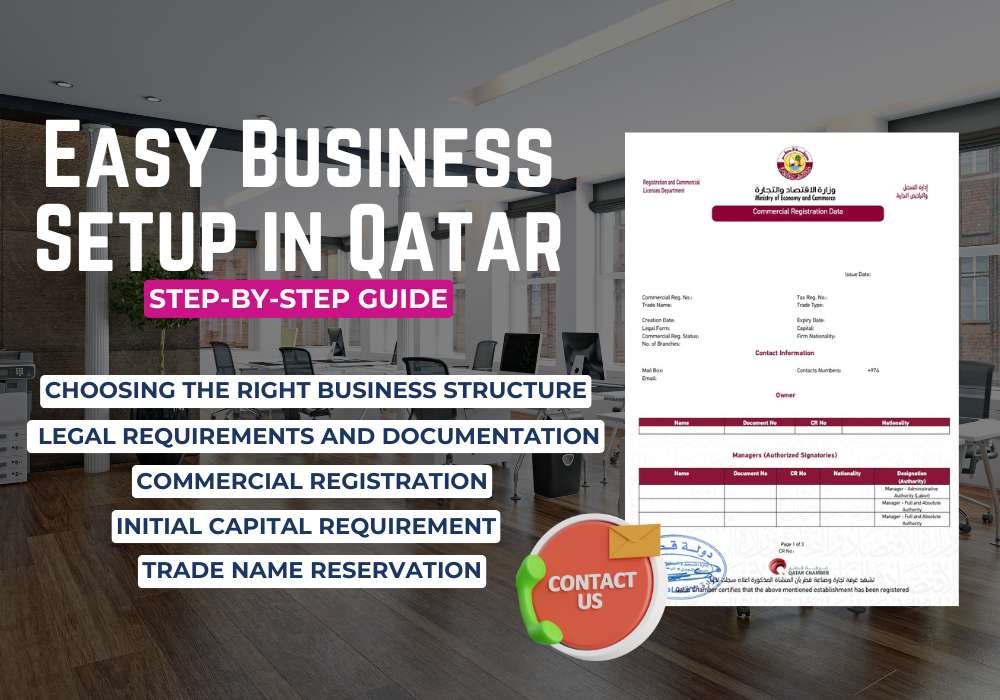Setting up a business in Qatar can be a highly rewarding venture. The nation’s strategic location, stable political environment, and robust economy offer plentiful opportunities for entrepreneurs. Here’s a straightforward guide to help you navigate through the process for a successful business setup in Qatar.
1. Understanding the Market
Before diving in, it is crucial to conduct thorough market research. Understanding the local market dynamics, consumer preferences, and industry trends will provide you with valuable insights.
- Identify Target Audience: Determine who your potential customers are.
- Analyze Competitors: Study your competition to find gaps you can exploit.
- Know Regulations: Familiarize yourself with local laws and business practices.
2. Choosing the Right Business Structure
Qatar offers various business structures, each with its own set of benefits and requirements.
- Limited Liability Company (LLC): Ideal for small and medium enterprises.
- Branch Office: Suitable for companies expanding their operations.
- Representative Office: Best for those looking to explore the market without making sales.
- Free Zone Entity: Enjoy multiple tax benefits in designated free zone areas.
3. Legal Requirements and Documentation
Ensuring compliance with legal requirements is a must for a successful business setup in Qatar.
- Trade Name Reservation: Secure a unique name for your business.
- Commercial Registration: Obtain the necessary registration from the Ministry of Commerce and Industry.
- Articles of Association: Draft and notarize the company’s memorandum and articles of association.
- Qatari Partner: Most businesses require a local partner holding 51% of the shares.
4. Financial Considerations
Proper financial planning is crucial for the longevity of your business.
- Initial Capital Requirement: Different business structures require different minimum capital.
- Bank Account: Open a corporate bank account to manage finances effectively.
- Accounting and Auditing: Ensure compliance with financial reporting and auditing standards.
5. Workforce and Employment
Qatar offers a diverse talent pool, but you need to adhere to employment regulations.
- Work Visas: Secure work permits for your expatriate employees.
- Qatarization: Comply with policies aimed at increasing Qatari nationals in the workforce.
- Employee Contracts: Draft clear employment contracts as per local labor laws.
6. Marketing and Networking
Building a strong brand presence is essential for your business.
- Local Partnerships: Collaborate with local businesses to amplify your reach.
- Digital Marketing: Utilize digital platforms to promote your business.
- Networking Events: Attend industry-specific events to expand your connections.
7. Navigating Taxation
Understanding Qatar’s taxation policies will help you plan your finances better.
- Corporate Tax: Be aware of corporate tax liabilities which are generally applicable to foreign shareholders.
- Withholding Tax: Applicable on payments to non-residents for royalties, management fees, etc.
- Custom Duties: Familiarize yourself with import/export duties.
In conclusion, a successful business setup in Qatar requires thorough planning, understanding the local market, and compliance with legal and financial norms. By following these steps, you can establish a firm foundation for your business in Qatar.






